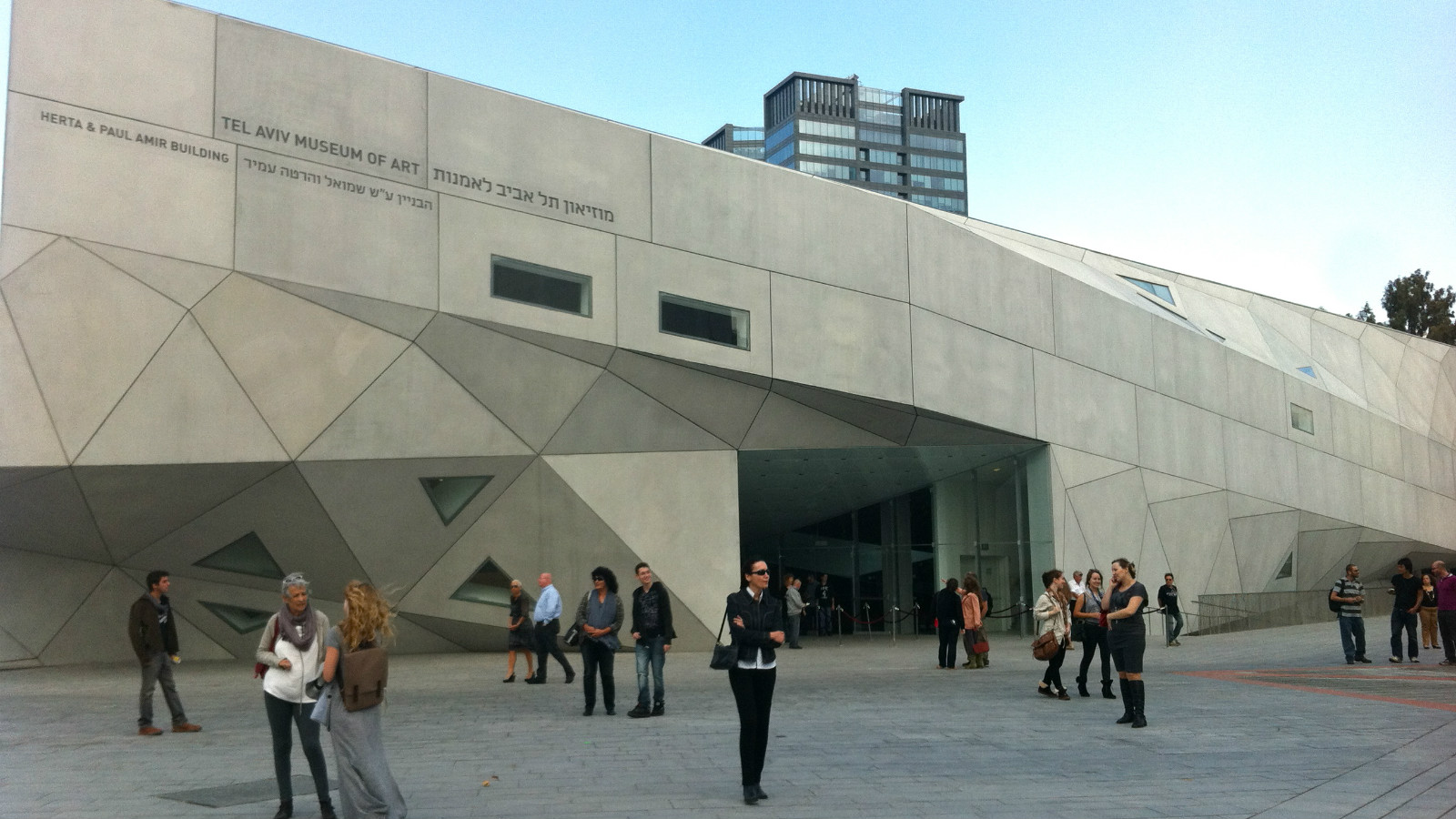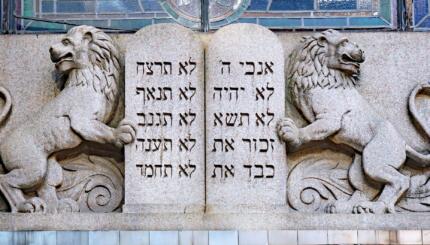Note: You may be eligible for a free or subsidized trip to Israel. Scroll down for information about some programs available.
Approximately 3 million people visit Israel each year. Some are Christians who come to walk in Jesus’ footsteps. An increasing number come to do business. Others come to have a good time in a country that offers scuba diving at the Red Sea, dipping in the healing waters of the Dead Sea, or wind surfing on the Mediterranean. The largest segment of visitors, though, are Jews coming to Israel because they are Jews and Israel is the Jewish homeland.
Perhaps these Jewish visitors can be called pilgrims. If pilgrimages are made to sacred places, however, it is a strangely secularized sense of sacred space that draws Jews to visit not only Jerusalem but also Eilat.
They come to see not only the site of the Holy Temple and the ruins of ancient synagogues but also trendy shops and cafés, to meet not only Jews engaged in study but also Jews who are diamond cutters, dairy farmers, and software tycoons.

Help us keep Jewish knowledge accessible to millions of people around the world.
Your donation to My Jewish Learning fuels endless journeys of Jewish discovery. With your help, My Jewish Learning can continue to provide nonstop opportunities for learning, connection and growth.
For Jewish travelers, a visit to Israel can and should be more than a typical tourist encounter with a foreign people, culture, and place. With preparation, it can be a stimulating, life-changing encounter. How, then, do we plan for a more enriching trip to Israel than that offered by standard tour agencies, a trip suited to our desire to explore what Israel means to Jews?
Experiencing Modern Israel

Jewish visitors come to Israel out of a sense of identification. But with what? Are they coming to learn about the land and people of Israel, or what being Jewish means to them?
If the experience of modern Israel is what you want to learn about, then you will want to visit sites like Independence Hall in Tel Aviv, where the Zionist leadership declared Israel’s independence in 1948, or Mount Herzl in Jerusalem, where most of the state’s early political leaders are buried. You can visit the home and the burial site of David Ben Gurion in the stark emptiness of the Negev or see memorials to battles and to fallen soldiers, then meet today’s soldiers on military bases. You can visit the Knesset and the Supreme Court. You can learn about Israel’s minorities by visiting Druze villages and Bedouin encampments. Tour operators can facilitate this. You can experience the Jewish ambience of public spaces: city centers, outdoor markets, even shopping malls.
The key to making this a transformational experience is to ask the sort of questions that most tourists rarely ask. In the mall, consider “Is there something that makes this place distinctly Jewish?” The answers may vary: a stall selling kippot, the Hebrew on the signs, the presence of a synagogue tucked away in the back. Whatever you find, the search raises the issue of what cultural distinctiveness Israeli and Diaspora Jews share. On such a trip, one can come to feel and understand the experience of Jews living as a Jewish majority, speaking a Jewish language, and living by the rhythms of the Jewish calendar, in the same hills and valleys as their ancient ancestors. Lisa Grant of the Hebrew Union College-Jewish Institute of Religion notes: “it has been demonstrated that Israel trips are successful in making American Jews feel more secure in themselves and more connected to the Jewish people.”
If you are planning this type of trip, look for travel providers who advertise that they do “educational travel” or provide “Israel education” experiences. These enterprises will have a person traveling with the group who is a “tour educator” or even “scholar-in-residence,” often alongside a licensed tour guide. Some education travel providers include: Keshet: The Center for Educational Tourism in Israel, The Israel Studies Institute (ISI), Oranim Educational Initiatives, Ramah Israel Programs, and Daat Travel Services.
Judaism, Israel and You
What if your goal is to use Israel as a venue to explore the spiritual side of Judaism? Lawrence A. Hoffman, also of HUC-JIR, wrote Israel: A Spiritual Travel Guide, to be “A Companion for the Modern Jewish Pilgrim.” In it, Hoffman offers 18 short readings to prepare for a trip to Israel, intended to be read over the three weeks before departure. “Your trip can be just another vacation,” he writes, “or it can be the journey of your life. To make it the latter, do it right… Put aside some sacrosanct time” for preparation.
For the trip itself, Hoffman gathers more texts: Psalms, poems, midrashim, and other readings to be read at many sites across the country He suggests prayers and blessings that can be used to enhance the experience of many types of sites: a place of battle, a place of hope, or seeing and hearing Hebrew all around you. Hoffman tries to help Jewish visitors connect–both before and during their visit–to the experience of prayer and thanksgiving. By using Jewish sources both ancient and modern, the book seeks to link the Israel experience to the practices and values of the religious life of Jews in the Diaspora.
Many Israel tour operators use Jewish texts, games, or discussions to make connections between visitors’ own Jewish identities and the land and people of Israel. As Steve Zerobnick of Jerusalem-based tour provider Israel Studies Institute puts it, an Israel trip should engage “the questions of how the story of Israel makes me feel about my own role in Jewish history, the Jewish world, Jewish politics, my community, and my family.” A visit to Jerusalem’s Mahane Yehuda market, for example, would best be planned for a Friday. Zerobnick explains: “Watching the transformation of Jerusalem from the high-energy, crowded atmosphere of mid-day and early afternoon to the quiet right before would be followed later by a discussion that asks: how do we translate that transformation into our Shabbat experience at home?”
Without making those sorts of connections during and after the experience, Zerobnick notes, even the greatest of transformational experiences can go sour. Not only is attention paid during the trip to processing these questions, but ISI even sends staff members abroad several months after a trip to encourage program participants to consider what they have done with their Israel experience in their own lives and the lives of their communities.
Journeys of the Spirit

It is possible to engage Israel at an even more personal level. Rabbi Jay Rosenbaum, in “Israel as a Spiritual Journey”(Sh’ma), observes that there is “a parallel between the travels of [the Jewish] people and our own soul’s journey,” and that an Israel trip is a chance to explore that parallel. “How, in fact, have our people reacted to change over the centuries? What can we learn from our people’s adaptive strategies that could help us cope with the jagged discontinuities in our own lives? Can the healing from a broken homeland be applied to a broken home?”
Why should Israel in particular be the site for such spiritual introspection? Because, even in the age of instant communication and widely affordable international travel, Israel is–or can be with sufficient planning and follow-up–a place that fosters dreams, a place that enables Jews to connect to their deepest aspirations for themselves and their people.
Free and Subsidized Educational Israel Trips
Birthright Israel offers a variety of free 10-day educational Israel tours for Jews age 18-26.
Honeymoon Israel offers subsidized Israel trips for newly married couples in which at least one partner is Jewish.
The Jewish Women’s Renaissance Project offers subsidized Israel trips for Jewish women who are not religiously observant and who have at least one child under the age of 18. Preference is given to women who have never visited Israel before.
Know of other free or subsidized trips? Please comment below or email us at community@myjewishlearning.org.



